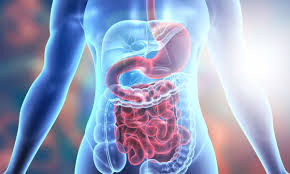In the intricate symphony of our bodies, there exists a silent hero – digestive enzymes. These unsung champions play a pivotal role in ensuring our bodies receive the essential nutrients from the food we consume. In this comprehensive guide, we will unlock the secrets of digestive enzymes, shedding light on their vital functions and how they impact our overall well-being.
What Are Digestive Enzymes?
Digestive enzymes are specialized proteins produced by our bodies to facilitate the breakdown of complex food molecules into simpler, absorbable forms. They act as biological catalysts, making digestion possible by speeding up chemical reactions. Without these enzymes, our bodies would struggle to extract the nutrients necessary for survival from the food we eat.
The Digestive Enzyme Dream Team
1. Amylase
Digesting Carbohydrates: Amylase is the superstar responsible for breaking down carbohydrates into sugars. Found in saliva and pancreatic juices, amylase kicks off the digestion process in the mouth and continues its mission in the small intestine.
2. Protease
Unraveling Proteins: Protease is the muscle behind protein digestion. It breaks down complex protein molecules into amino acids, the building blocks of life. Without protease, we couldn’t repair and grow our tissues or produce essential enzymes and hormones.
3. Lipase
Fighting Fat: Lipase steps up to the plate to tackle fats. It breaks down fats into fatty acids and glycerol, which are vital for energy production and the absorption of fat-soluble vitamins (A, D, E, and K).
4. Nuclease
DNA Digestion: Nuclease is the enzyme responsible for digesting nucleic acids like DNA and RNA. It ensures that our bodies can recycle genetic material and use its components for various cellular processes.
The Digestive Enzyme Dance: Digestion is a meticulously choreographed dance of enzymes and food. It begins in the mouth as amylase starts breaking down carbohydrates while you chew. The chewed food then travels down the esophagus into the stomach.
In the stomach, protease and lipase join the party. Protease begins the digestion of proteins, while lipase starts emulsifying fats. The stomach’s acidic environment helps these enzymes work their magic.
The partially digested food then enters the small intestine, where the pancreas releases a mix of enzymes, including amylase, protease, and lipase, to ensure every nutrient is extracted. This is where the real action happens.
Digestive Enzymes and Your Health
The role of digestive enzymes extends beyond digestion itself. Their impact on our health is profound:
1. Nutrient Absorption: Digestive enzymes ensure that nutrients are broken down into forms that can be easily absorbed by the body. Without them, even the healthiest diet would be of little use.
2. Gut Health: A well-functioning digestive system with sufficient enzymes contributes to a balanced gut microbiome, reducing the risk of digestive issues like irritable bowel syndrome (IBS) and bloating.
3. Energy Production: The breakdown of carbohydrates, proteins, and fats by enzymes provides the energy needed for bodily functions. Without them, fatigue and malnutrition could ensue.
4. Immune Support: Proper digestion helps prevent undigested food particles from leaking into the bloodstream, reducing the risk of food allergies and supporting overall immune health.
Boosting Digestive Enzyme Activity: While our bodies naturally produce digestive enzymes, certain factors can hinder their effectiveness. Age, stress, poor diet, and medical conditions can all play a role. Fortunately, there are ways to support and enhance your digestive enzymes:
1. Benefits of Eating Mindfully for Digestive Health: Chew your food thoroughly. This not only aids in the mechanical breakdown of food but also allows saliva’s amylase to start the digestion of carbohydrates.
2. Enzyme-Rich Foods: Boosting Digestion Naturally: Include enzyme-rich foods like papaya, pineapple, and fermented foods in your diet to support enzyme production.
3. The Role of Digestive Enzyme Supplements in Gut Health: Consider enzyme supplements if you have digestive issues or enzyme deficiencies. Consult a healthcare professional before adding them to your regimen.
4. Managing Stress for Improved Digestive Enzyme Function: Stress can hinder enzyme production. Practicing stress management techniques like yoga, meditation, and deep breathing can be beneficial.
Conclusion: In the grand narrative of human health, digestive enzymes hold a significant role. They are the unsung heroes behind the scenes, ensuring that the food we eat nourishes our bodies and supports our overall well-being. Understanding the vital function of digestive enzymes allows us to appreciate the intricate processes at play within us and make informed choices to keep our digestive system in harmony. So, the next time you sit down for a meal, remember the remarkable work of these tiny yet mighty enzymes that unlock the secrets to a healthier you.
